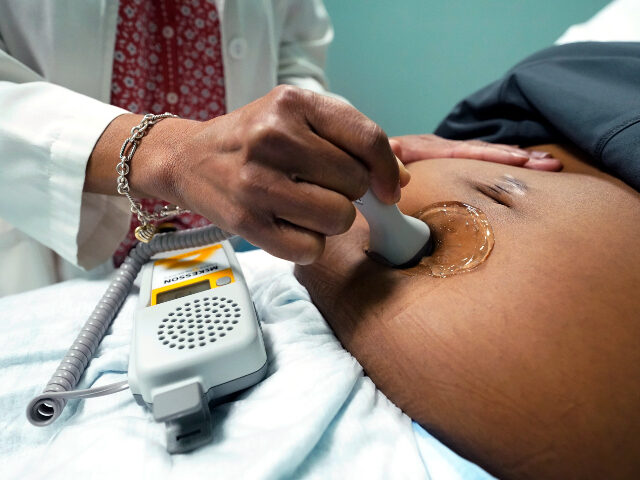Florida health regulators released two emergency rules on Thursday to combat the “deeply dishonest scare campaign and disinformation being perpetuated by the media, the Biden Administration, and advocacy groups,” now that the state’s six-week abortion restriction is in effect.
“[The Florida Agency for Health Care Administration (AHCA)] finds there is an immediate danger to the health, safety, and welfare of pregnant women and babies due to a deeply dishonest scare campaign and disinformation being perpetuated by the media, the Biden Administration, and advocacy groups to misrepresent the Heartbeat Protection Act and the State’s efforts to protect life, moms, and families,” the rules read.
“The Agency is initiating rulemaking to safeguard against any immediate harm that could come to pregnant women due to disinformation. This rulemaking will ensure health care providers establish medical records procedures that will adequately protect the care and safety of both mothers and their unborn babies during medical emergencies,” the rules continue.
Regulators specifically focused on medical conditions that can occur after six weeks of pregnancy, which “can present an immediate danger to the health, safety, and welfare of women and unborn children in hospitals and abortion clinics if immediate and proper care and treatment is not rendered.” Those conditions include “premature rupture of membranes,” which is when a woman’s water breaks prematurely, ectopic pregnancies, and trophoblastic tumors.
An ectopic pregnancy is a “life-threatening condition” and occurs when a fertilized egg implants outside of the uterus, according to the Cleveland Clinic. With trophoblastic tumors, the tumors “start off as cells called trophoblasts, which typically develop into the placenta of pregnancy,” according to the Cleveland Clinic. The tumors are typically non-cancerous, however some can be cancerous and spread to nearby tissues or organs.
Both rules clarify that treating ectopic pregnancies and trophoblastic tumors will not be considered abortions. The rules also state that it “does not constitute an abortion” if doctors try to induce a live birth and the baby dies because of a prematurely ruptured membrane.
The rules require hospitals to “maintain written policies and procedures governing the maintenance of medical records for the treatment of premature rupture of membranes, ectopic pregnancies, trophoblastic tumors, and other life-threatening conditions.”
One of the rules states that a hospital must admit a woman who has been diagnosed with premature rupture of membranes for observation, unless the treating physician decides another course of action is more appropriate to protect the life and health of the mother and unborn baby. If doctors decide on another treatment, they would have to document their reasons.
The rules also require abortion clinics or any medical facilities where abortions are performed to submit monthly reports to the agency or face an administrative fine.
The state’s Heartbeat Protection Act went into effect on Wednesday following a ruling from the Florida Supreme Court on April 1 upholding the state’s 15-week abortion restriction. The court’s decision to allow the 15-week limit to stand cleared the way for the state’s six-week abortion limit to take effect.
Florida Gov. Ron DeSantis (R) signed the six-week heartbeat bill in April 2023, which contains exceptions for rape, incest, human trafficking, life of the mother, and “to avert a serious risk of imminent substantial and irreversible physical impairment of a major bodily function.” The state Supreme Court allowed the six-week limit to remain blocked until it could rule on the 15-week limit, which was passed in 2022.
The emergency rules from regulators follow similar actions in other states that have passed laws restricting abortion. For example, the Texas Medical Board is considering similar rules in their state, and South Dakota Gov. Kristi Noem (R) signed a first-of-its-kind “Med Ed” bill in March designed to combat abortion misinformation and provide guidance to healthcare workers.
Katherine Hamilton is a political reporter for Breitbart News. You can follow her on X @thekat_hamilton.

COMMENTS
Please let us know if you're having issues with commenting.